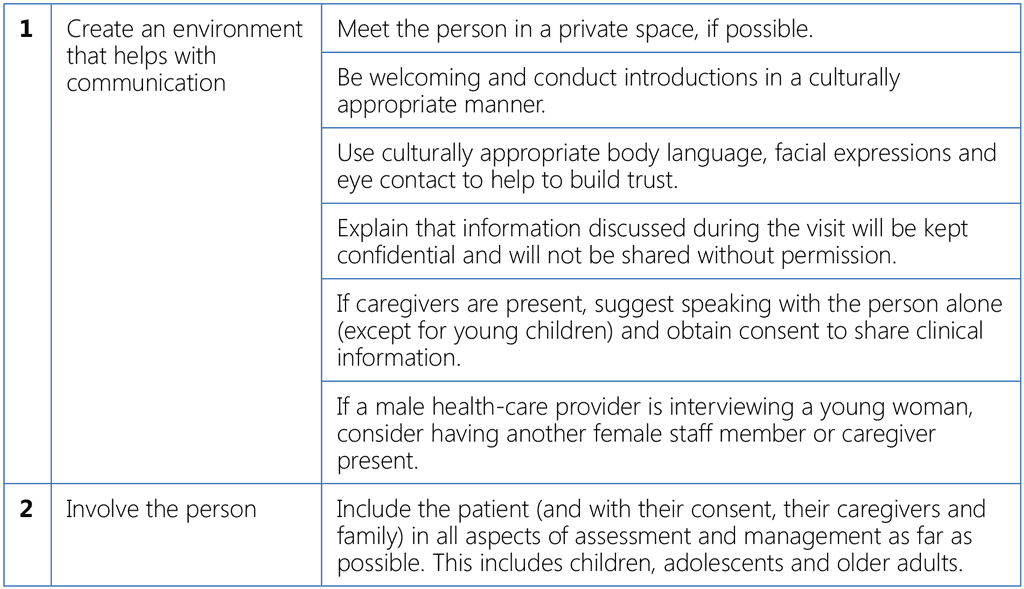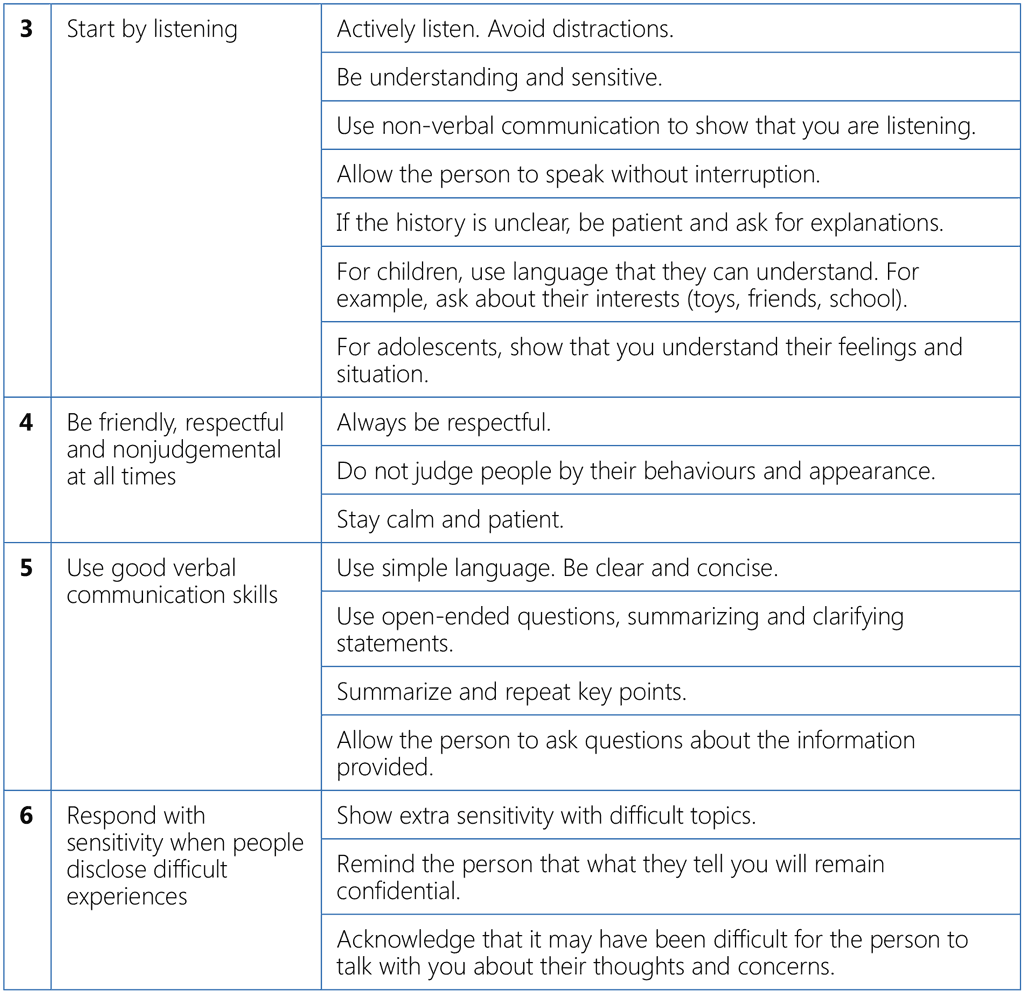Liens transversaux de livre pour 4.2.5 Providing information
Health education and counselling must be given in very simple and clear language. Even medical information should avoid technical terms and medical jargon. Sometimes a limited amount of information is shared in one meeting so that the patient can understand it and then can think about it and is prepared for further information at the next meeting. Sometimes, important information needs to be repeated to help the patient understand it.
Health-care providers should use language that is respectful towards patients and caregivers. It is important to not use derogative or judgemental language. Terms such as “defaulter”, “suspect” and “control” are disrespectful and disempowering. These are best replaced with “person lost to follow-up”, “person with suspected TB” or “person to be evaluated for TB”. The term “control” can be replaced by “prevention and care”. Similarly, expressions such as “patient failed treatment” or “failed to comply” reflect the view that the patient is to blame for the failure of treatment (44).
The volume and tone of the voice of the health-care provider is also important during health counselling. A very loud volume might be intimidating, and a very low volume may be difficult to hear or may give the impression that the health-care provider is unsure of him/herself. Similarly, if the health-care provider is speaking too fast, it seems as if they are in a rush and can also be difficult to understand. Table 1 summarizes effective communication skills for a clinical encounter (45).
Table 1. Effective communication skills


 Retour
Retour